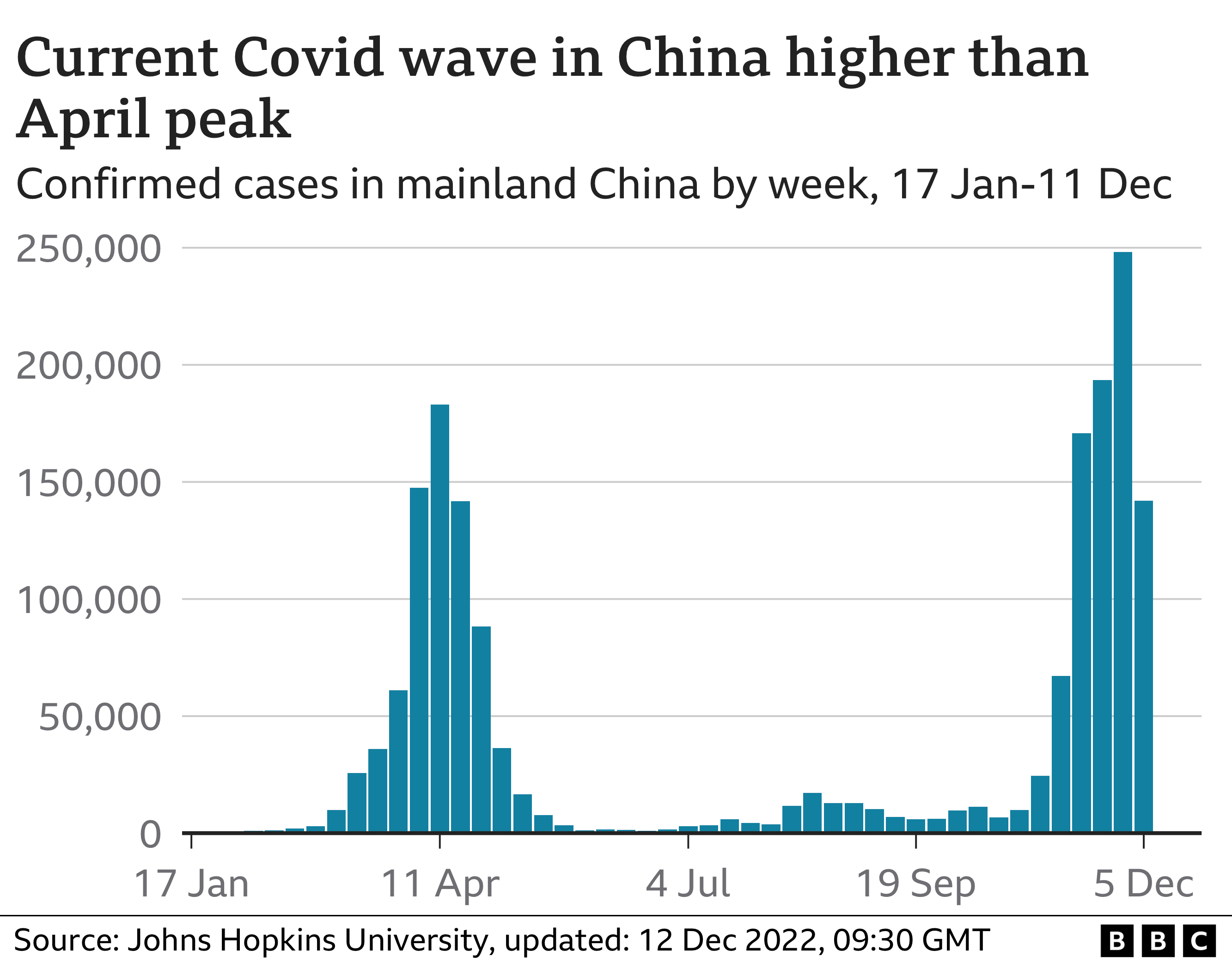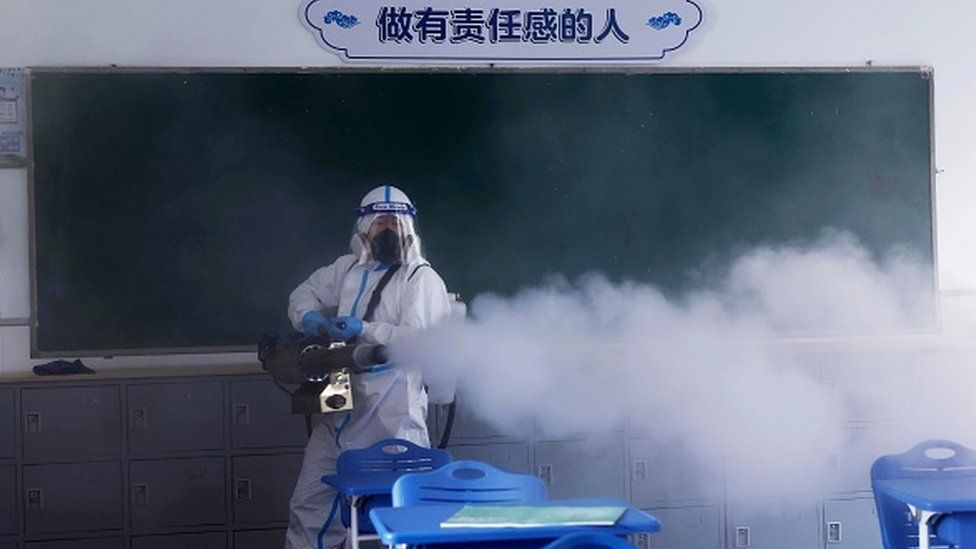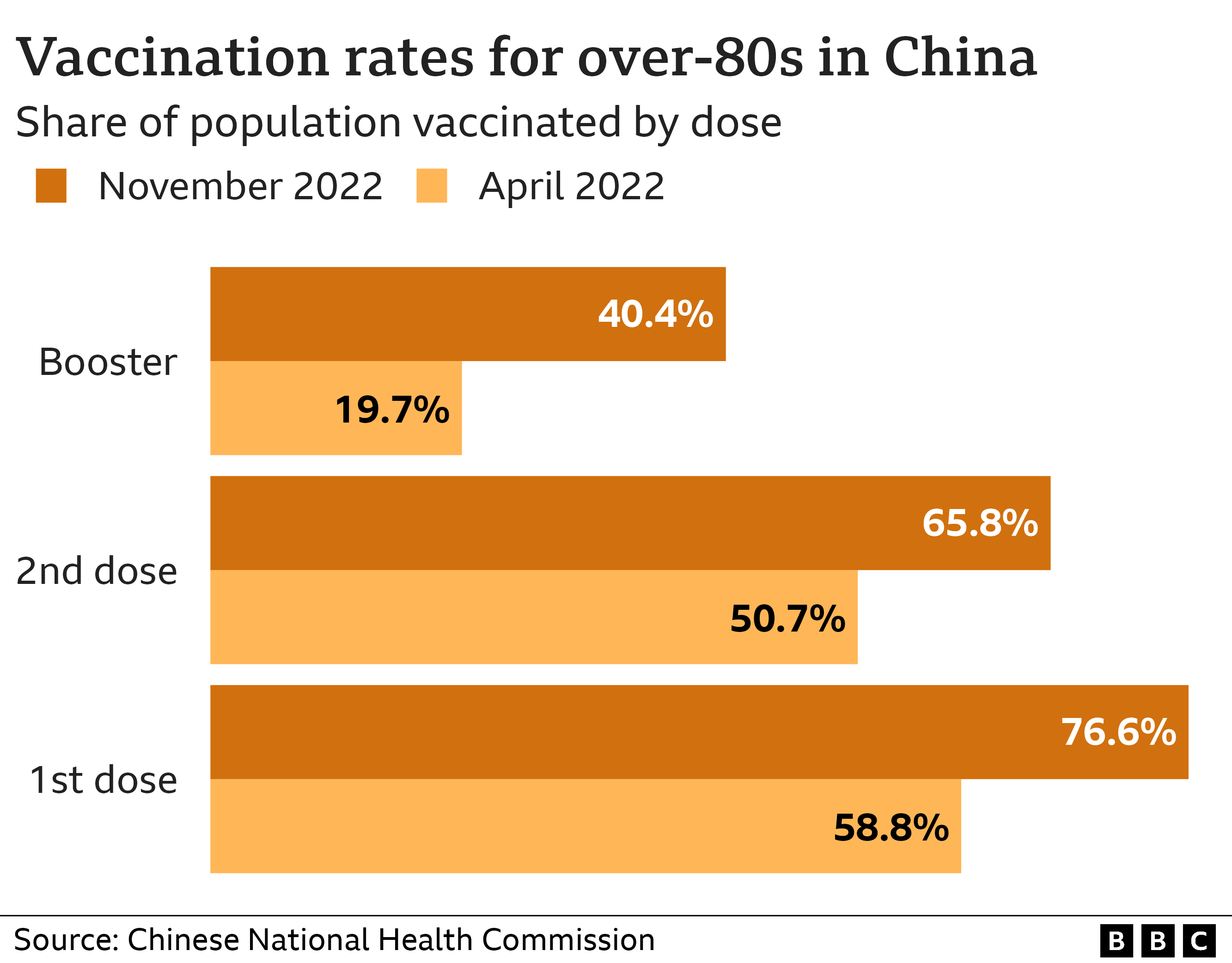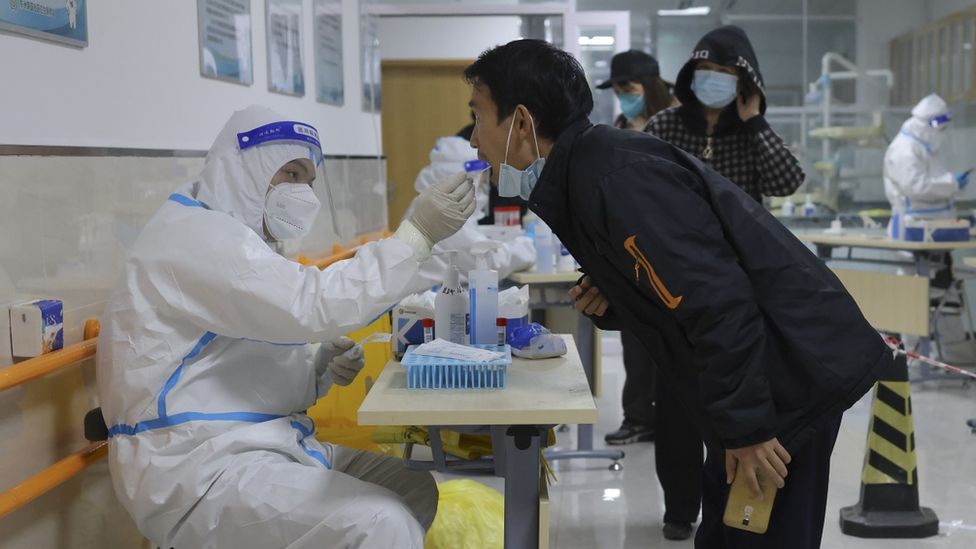BBC News 13 December 2022
Covid infection rates have been rising across China following the recent easing of strict lockdown measures.
This loosening of controls came after widespread protests against the restrictions.
How many new Covid cases are there?
In the week ending 11 December official figures report a fall in the total number of new infections across the country after a peak the previous week.
Local media accounts suggest continuing high levels of infection in many areas, particularly in China's largest cities, including Beijing.
Temporary health centres are being set up along with intensive care facilities. It's been reported that in Shanghai alone, an extra 230,000 hospital beds have been made available.
Long queues have been described at Covid testing clinics - where people are going after self-testing kits have shown up positive.
There have also been reports of high demand for fever remedies at pharmacies.
What was China's zero Covid policy?
Before the recent relaxation of restrictions, China had one of the toughest anti-Covid regimes in the world - known as its zero-Covid policy.
The measures included:
- Strict lockdowns imposed by local authorities - even if only a handful of Covid cases found
- Mass testing in places where cases reported
- People with Covid isolated at home, or placed under quarantine at government facilities
- Businesses and schools closed in lockdown areas
- Shops closed - except for those selling food
- Lockdowns continuing until no new infections reported
This meant tens of millions of people were living under some kind of lockdown.
Some local authorities took extreme measures, such as forcing workers to sleep inside factories so they could work while quarantined.
In early November, workers at the Foxconn factory in Zhengzhou, which makes iPhones, staged a mass breakout because of fears they would be shut inside.
In August, shoppers in an Ikea store in Shanghai forced their way out through the doors to escape being locked down inside it.
How have the rules changed?
Following the protests against Covid lockdowns across the country - including direct criticism of President Xi Jinping and the Chinese Communist Party - the government announced an easing of the measures.
These include:
- Lockdowns now targeted to buildings, units or floors rather than to whole neighbourhoods or cities
- "High-risk" areas to come out of lockdown in five days if no new cases are found
- Schools to remain open if there's no wider campus outbreak
- People with Covid no longer required to go to a centralised quarantine facility
- PCR tests are no longer required to enter public transport, restaurants, gyms and other public buildings, with the exception of schools, hospitals and nursing homes
- Lateral flow tests to replace PCR tests in most cases
- Inter-province travel restrictions lifted
- National tracking app discontinued
Earlier, the government reduced isolation from 10 to eight days - five days at an isolation centre, plus three at home.
China is also now allowing international arrivals for the first time since March 2022.
What are China's vaccination rates?
Overall, China says more than 90% of the population has been fully vaccinated.
However, less than half of people aged 80 and over have received three doses of vaccine. The vaccination rate back in April among this age group was much lower - less than 20%.
The authorities now say they require local health services to "strengthen immunization of the whole population, particularly the elderly".
There are doubts over whether the main vaccines used in China - Sinovac and Sinopharm - are effective against Omicron, the most widespread strain.
Western countries have offered China more effective vaccines, but China has refused to use them widely.
The government has given no official explanation. However, national pride may be a factor according to Dr Yu Jie, Senior Research Fellow on China at the international affairs think tank Chatham House:
"I think it's Xi Jinping really thinking of things in terms of economic self-reliance - that need to have China produce and use its own vaccine, rather than import it from somewhere."
Was zero Covid policy effective?
The Chinese government called its now dismantled policy "dynamic zero" - taking action wherever Covid flares up in order to eradicate it.
The government said this saves lives, because uncontrolled outbreaks would put many vulnerable people at risk, including the elderly.
Strict lockdowns mean China's death toll had stayed low ever since the start of the pandemic - the official figure is just over 5,200.
This is equal to only three Covid deaths in every million in China, compared with 3,000 per million in the US and 2,400 per million in the UK.
What effect have zero Covid policies had on China's economy?
In recent months, lockdowns have taken place in several cities.
These include Shenzhen, a city of 17.5 million and technology hub, and Shanghai, a city of 26 million which is a manufacturing, trade and financial hub.
Lockdowns have led to factories and ports being shut for long periods.
They have also affected work with foreign companies.
It means that China's economy has grown by only 3.9% over the past year, compared with its target of 5.5% for 2022.
Unemployment is rising, especially amongst young people, and the property market is weakening.
China's lockdown measures are also affecting businesses and consumers in the rest of the world, who have come to rely on China for supplies of goods.
A lockdown at the Foxconn plant in Zhengzhou hit the production of iPhones, leading to fears of a worldwide shortage.
Factory closures have also led to fears of a shortage of toys ahead of Christmas.
Additional reporting by Jeremy Howell.




